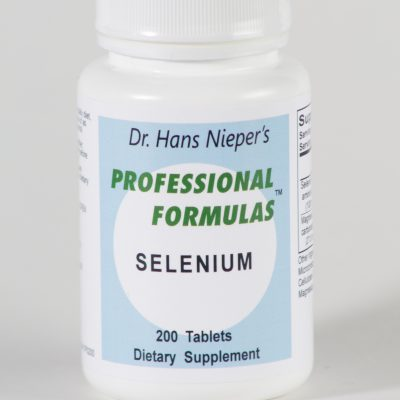
Table of Contents
Introduction to Thyroid Disorders
The thyroid gland, a small butterfly-shaped organ located at the base of the neck, plays a crucial role in the body’s metabolic processes. It produces hormones that regulate various functions, including heart rate, body temperature, digestion, and even mood. Understanding thyroid disorders, including their symptoms and treatments, is essential not just for those diagnosed with thyroid disorders, but for anyone interested in maintaining optimal health and enhancing their overall well-being through awareness of thyroid disorders.
In this guide, we will explore a comprehensive approach to understanding thyroid health, from the basics of thyroid function and testing to essential nutrients and potential threats that could jeopardize thyroid activity. Whether you are a healthcare professional or a general audience member looking to learn more about the thyroid, this guide aims to provide valuable insights and actionable information.
Individuals with thyroid disorders may experience a range of symptoms, such as fatigue, weight changes, and mood swings. Understanding these symptoms is crucial for early diagnosis and management of thyroid disorders.
What is the Thyroid?
Understanding thyroid disorders requires knowledge of how the thyroid functions and the hormones it produces. Thyroid disorders can manifest in different ways, and recognizing them is pivotal to achieving better health outcomes.
Proper functioning of the thyroid is essential to prevent thyroid disorders such as hypothyroidism and hyperthyroidism, which can significantly impact an individual’s health and quality of life.
The thyroid is an endocrine gland that produces hormones critical for regulating metabolism. The primary hormones produced by the thyroid are thyroxine (T4) and triiodothyronine (T3). T4 is the inactive form that converts to the active T3 in various tissues. These hormones not only influence metabolic rate but also play a vital role in growth and development, particularly in children.
Individuals with thyroid disorders often require ongoing monitoring and management to ensure they maintain optimal thyroid function.
Understanding thyroid disorders and how they affect the body can lead to better management strategies and improved overall health.
In addition to T3 and T4, the thyroid also produces calcitonin, a hormone involved in calcium homeostasis. Proper functioning of the thyroid is essential for bodily functions, and any imbalance can lead to conditions such as hypothyroidism (underactive thyroid) or hyperthyroidism (overactive thyroid).
Importance of Thyroid Activity in Overall Health
Detecting thyroid disorders early through proper testing is key to effective treatment and management.
Healthcare providers use these tests to assess thyroid disorders and tailor treatment plans for each patient.
Thyroid hormones are involved in nearly every biochemical process in the body, influencing how our body utilizes energy and responds to various environmental factors. For example, they help regulate the body’s energy levels, maintain a healthy heart rate, and support cognitive function. Consequently, any disruption in thyroid activity can have far-reaching implications, affecting everything from weight management to mental health.
Furthermore, thyroid health is interconnected with other bodily systems, including the immune and metabolic systems. This interdependence highlights the importance of regular thyroid function monitoring, especially for individuals experiencing symptoms that could indicate thyroid dysfunction, such as fatigue, weight changes, or mood swings.
In recognizing thyroid disorders, understanding the significance of these tests helps individuals make informed choices about their health.
Testing for Thyroid Function
Standard Tests for Thyroid Activity
By addressing dietary needs, individuals can minimize the risk of thyroid disorders related to nutritional deficiencies.
Standard tests for assessing thyroid function include measuring levels of Thyroid-Stimulating Hormone (TSH), Free T4, and Free T3 in the bloodstream. TSH is produced by the pituitary gland and regulates the thyroid’s production of T4 and T3. A high TSH level typically indicates hypothyroidism, while a low TSH level suggests hyperthyroidism.
Free T4 and Free T3 tests measure the levels of these hormones in their unbound state, providing insight into the thyroid’s functional capacity. These tests are crucial for diagnosing thyroid disorders, allowing healthcare providers to tailor treatment plans effectively.
Non-Standard Tests and Their Significance
Individual dietary strategies can mitigate thyroid disorders and enhance overall thyroid function.
In certain cases, non-standard tests may also be utilized to gain a more comprehensive understanding of thyroid health. These tests can include Anti-Thyroid Antibodies tests, which help identify autoimmune thyroid conditions like Hashimoto’s disease or Graves’ disease. Additionally, Reverse T3 tests can aid in understanding how the body converts T4 into its active forms, offering further insights into thyroid function.
Understanding these various tests can help individuals and healthcare professionals make informed decisions about managing thyroid health. An amalgamation of standard and non-standard tests provides a holistic picture of the thyroid’s activity.
Understanding Thyroid Production and Release
How the Thyroid Produces Hormones
The production of thyroid hormones begins with the intake of iodine, a critical element that the thyroid needs to synthesize T3 and T4. Iodine is absorbed from the diet, and its levels significantly influence hormone production. The thyroid gland takes up iodide from the blood and combines it with the amino acid tyrosine to form T3 and T4.
Ensuring adequate iodine levels is critical for preventing thyroid disorders and maintaining optimal thyroid function.
Once synthesized, T4 and T3 are stored in the thyroid gland until needed. The release of these hormones is regulated by the hypothalamus and pituitary gland through a feedback loop that maintains homeostasis. When hormone levels are sufficient, the hypothalamus reduces the production of Thyrotropin-Releasing Hormone (TRH), thereby decreasing TSH from the pituitary gland.
The Role of Absorption in Thyroid Function
Dietary intake of tyrosine can support the prevention of thyroid disorders by ensuring sufficient hormone production.
Hormone absorption is essential for effective thyroid function. After release, T4 and T3 travel through the bloodstream to target tissues, where they exert their metabolic effects. The bioavailability of these hormones is critical, as various factors can affect their absorption, including medications, dietary components, and gut health.
For example, certain foods, such as those high in fiber, can bind to thyroid hormones and inhibit their absorption. Furthermore, gastrointestinal conditions affecting nutrient absorption can also impair thyroid function by limiting the availability of essential nutrients required for hormone production.
Understanding the biochemical processes can improve awareness of how thyroid disorders develop.
Nutrients Essential for Thyroid Health
The Importance of Manganese in Thyroid Activity
Vitamins play a critical role in mitigating the effects of thyroid disorders and supporting overall health.
Incorporating a well-rounded diet can help combat potential thyroid disorders by providing essential nutrients.
Manganese is a trace mineral that plays a pivotal role in thyroid health. It is involved in the synthesis of thyroid hormones and acts as a co-factor for various enzymes essential for energy production and antioxidant defense. Adequate manganese levels can help support the overall functionality of the thyroid gland, ensuring optimal hormone production.
Foods rich in manganese include nuts, whole grains, legumes, and leafy green vegetables. Incorporating these foods into the diet can help maintain adequate manganese levels and support thyroid health.
The Role of Iodine in Hormone Production
Iodine is perhaps the most crucial nutrient for thyroid health. It is the primary building block for the production of T3 and T4 hormones. Without sufficient iodine, the thyroid cannot produce adequate hormones, leading to conditions such as goiter and hypothyroidism.
Dietary sources of iodine include seaweed, fish, dairy products, and iodized salt. Maintaining an appropriate level of iodine intake is essential, especially for pregnant women and children, as iodine deficiency can have severe consequences for fetal and child development.
Tyrosine and its Impact on Thyroid Function
Tyrosine, an amino acid derived from dietary proteins, is another critical component in the synthesis of thyroid hormones. It combines with iodine in the thyroid gland to form T3 and T4. A deficiency in tyrosine can disrupt hormone production, leading to thyroid dysfunction.
Foods high in tyrosine include chicken, turkey, fish, dairy products, nuts, and legumes. Including these protein-rich foods in the diet can help ensure an adequate supply of tyrosine, supporting healthy thyroid function.
Cyclic AMP: A Key Player in Thyroid Hormone Regulation
Cyclic adenosine monophosphate (cAMP) is a second messenger in cellular signaling pathways that plays a vital role in regulating thyroid hormone synthesis. When TSH binds to its receptor on thyroid cells, it activates a signaling cascade that increases cAMP levels, stimulating the synthesis and secretion of thyroid hormones.
Understanding the role of cAMP in thyroid function highlights the complexity of hormonal regulation in the body. Factors that influence cAMP levels, such as stress and certain medications, can indirectly affect thyroid activity and overall metabolic health.
The Benefits of Vitamin C and B-Complex for Thyroid Health
Vitamins play a significant role in supporting thyroid health. Vitamin C is a powerful antioxidant that helps protect thyroid cells from oxidative stress, while B vitamins are crucial for energy production and hormone regulation. B vitamins such as B12 and B6 are particularly important for thyroid hormone metabolism and conversion processes.
Including a variety of fruits, vegetables, whole grains, and lean proteins in the diet can help ensure adequate intake of these essential vitamins. Adequate nutrient levels can help promote optimal thyroid function, contributing to overall health and well-being.
Mitochondrial Function and Thyroid Activity
How Mitochondria Support Thyroid Hormone Usage
Mitochondria, often referred to as the powerhouses of the cell, play a crucial role in energy production and metabolism. They are the site of oxidative phosphorylation, where ATP (adenosine triphosphate) is generated, providing energy for various cellular processes. The thyroid hormones T3 and T4 are intricately linked to mitochondrial function and metabolism.
Improved mitochondrial function enhances the body’s ability to utilize thyroid hormones effectively. When mitochondrial health is compromised, it can lead to decreased energy levels and diminished metabolic processes, which can exacerbate thyroid-related symptoms. Thus, maintaining mitochondrial health is essential for optimal thyroid function.
Common Threats to Thyroid Health
The Dangers of Fluoride on Thyroid Function
Fluoride, commonly added to drinking water and dental products, has been shown to have negative effects on thyroid health. Studies suggest that excessive fluoride exposure can inhibit thyroid hormone production and lead to conditions like hypothyroidism. The mechanism of action may involve fluoride’s interference with iodine uptake by the thyroid gland.
Reducing fluoride exposure can be beneficial for maintaining thyroid health. Opting for fluoride-free dental products and using filtration systems for drinking water can help mitigate fluoride intake and promote better thyroid function.
Impact of Soy on Thyroid Activity
Soy products contain isoflavones, which are phytoestrogens that can potentially disrupt thyroid function, particularly in individuals with existing thyroid disorders. Research has indicated that consuming high amounts of soy can inhibit the absorption of thyroid hormones and impair their effectiveness.
Understanding the pros and cons of treatment options for thyroid disorders is vital in managing individual health.
While moderate soy consumption is generally considered safe for most individuals, those with thyroid conditions should monitor their intake and consult healthcare providers for personalized recommendations regarding soy products.
Understanding Radiation Damage to the Thyroid
Choosing the right supplements can provide critical support for those managing thyroid disorders.
Radiation exposure can have detrimental effects on thyroid health. High doses of radiation, particularly in children, can increase the risk of thyroid cancer and other thyroid-related diseases. This risk is particularly concerning in areas exposed to nuclear fallout or during medical treatments involving radiation.
Regularly assessing thyroid function is crucial in preventing complications from thyroid disorders.
By being proactive and informed about thyroid disorders, individuals can take significant steps towards better health.
Familiarity with common questions regarding thyroid disorders can enhance understanding and management strategies.
Protecting the thyroid from harmful radiation involves minimizing unnecessary exposure and, in certain cases, using potassium iodide to block radioactive iodine absorption. Awareness of environmental risks is crucial for maintaining thyroid health.
The Role of Mercury in Thyroid Problems
Mercury is a heavy metal that can interfere with thyroid function, affecting hormone production and regulation. Exposure to mercury, particularly from contaminated fish, dental amalgams, and industrial sources, can lead to thyroid dysfunction.
For individuals concerned about mercury exposure, choosing low-mercury fish options and using safe dental materials can help reduce the risk. Regular testing and monitoring for heavy metals in individuals with thyroid disorders may also be warranted.
Alternative Testing and Approaches
The Value of Hair Mineral Testing for Thyroid Health
Hair mineral testing is an alternative approach that can provide insights into an individual’s nutrient status and potential toxic metal exposure. This testing method assesses trace minerals and heavy metals retained in the hair shaft, offering a comprehensive view of nutritional and toxicological status over a period.
For thyroid health, hair mineral testing can assist in identifying deficiencies or excesses that could impact hormone production and metabolic function. Integrating hair mineral testing into a broader diagnostic approach can help tailor nutritional interventions and lifestyle modifications for improved thyroid health.
Natural Thyroid vs. Synthetic Hormones: Pros and Cons
When it comes to treating thyroid disorders, patients may face the choice between natural and synthetic hormone therapies. Natural desiccated thyroid (NDT) is derived from pig thyroid glands and contains T3 and T4 in their natural ratios. Advocates of NDT argue that it is more effective and has fewer side effects compared to synthetic options.
On the other hand, synthetic hormones like levothyroxine (Synthroid) are precisely dosed and widely used in clinical practice. While they are effective for most patients, some individuals may not respond optimally. The choice between natural and synthetic therapies should be individualized based on patient preferences, response to treatment, and medical history.
Nutritional Supplements to Support Thyroid Function
Essential Supplements for Optimal Thyroid Health
Supplementing with specific vitamins and minerals can bolster thyroid health, especially for individuals with deficiencies. Selenium is crucial for the conversion of T4 to T3 and helps protect the thyroid from oxidative damage. Zinc is another important nutrient that supports thyroid hormone production and immune function.
Other beneficial supplements may include iodine (if deficient), vitamin D, and omega-3 fatty acids, which can help reduce inflammation and support overall endocrine health. Consulting with a healthcare professional before starting any supplement regimen is essential to ensure appropriateness and safety.
Conclusion
Understanding thyroid health encompasses various aspects, including hormone production, essential nutrients, testing methods, and potential threats. By prioritizing thyroid health through nutrition, awareness of environmental factors, and appropriate medical interventions, individuals can support their metabolic functions and enhance their overall well-being.
Regular monitoring and a proactive approach to health can empower individuals to manage their thyroid function effectively. Whether you are experiencing symptoms or simply seeking to optimize your health, becoming informed about thyroid activity is a vital step toward a healthier future.
FAQ’s
What are the common symptoms of thyroid dysfunction?
Common symptoms of thyroid dysfunction include fatigue, weight changes, mood swings, hair loss, dry skin, sensitivity to cold or heat, and difficulty concentrating. It is essential to recognize these symptoms and consult a healthcare provider for appropriate testing.
How can I improve my thyroid health through diet?
Improving thyroid health through diet involves incorporating iodine-rich foods, such as seaweed and fish, along with adequate protein sources for tyrosine. Additionally, focusing on antioxidant-rich fruits and vegetables can help protect thyroid cells from damage.
Are there any lifestyle changes that can support thyroid function?
Yes, lifestyle changes such as managing stress through mindfulness practices, regular exercise, and ensuring adequate sleep can significantly support thyroid function. Reducing exposure to environmental toxins and maintaining a balanced diet are also crucial.
What role does stress play in thyroid health?
Chronic stress can negatively affect thyroid function by altering hormone levels and metabolic processes. Elevated cortisol levels can inhibit TSH production and disrupt the balance of thyroid hormones, leading to potential dysfunction.
When should I see a doctor about my thyroid health?
If you experience symptoms indicative of thyroid dysfunction or have concerns about your thyroid health, it is advisable to consult a healthcare provider. Regular check-ups and blood tests can help monitor thyroid function and identify any potential issues before they become problematic.
Products
At Home Tests
-
←→

Ayumetrix Thyroid Blood Spot Test
$135.00Ayumetrix Thyroid Blood Spot Test for TSH, fT3, fT4, TPO, provides an assessment of thyroid function.- Buy 2 at $130.00
Ayumetrix Thyroid Blood Spot Test
$135.00Successfully Added to your Shopping CartAdding to Cart...
Supplements
-
←→

Membrane Complex
Supplements, Mineral Supplements, Heart Solutions, Immune System Supplements, Skin Solutions, Digestive Aids, Bone Solutions, Lung Solutions, Muscle Solutions$15.00Successfully Added to your Shopping CartAdding to Cart... -
←→

Zinc Arginate with Aspartate
Supplements, Mineral Supplements, Immune System Supplements, Skin Solutions, Immune System Solutions$8.10Successfully Added to your Shopping CartAdding to Cart... -
←→

Buffered C with Calcium, Magnesium & Potassium
Supplements, Vitamin Supplements, Immune System Supplements, Skin Solutions, Constipation Solutions, Cancer Solutions$11.70Successfully Added to your Shopping CartAdding to Cart... -
←→

Selenium
Supplements, Mineral Supplements, Immune System Supplements, Heart Solutions, Immune System Solutions, Hormone Solutions$13.10Successfully Added to your Shopping CartAdding to Cart...
References
- https://www.womenshealth.gov/a-z-topics/thyroid-disease
- https://order.store.mayoclinic.com/flex/mmv/fhblc01/?altkey=FHBORG
- https://order.store.mayoclinic.com/flex/mmv/hldigar/?altkey=HLEMORG
- https://links.e.response.mayoclinic.org/EmailPreview-GeneralHealth

